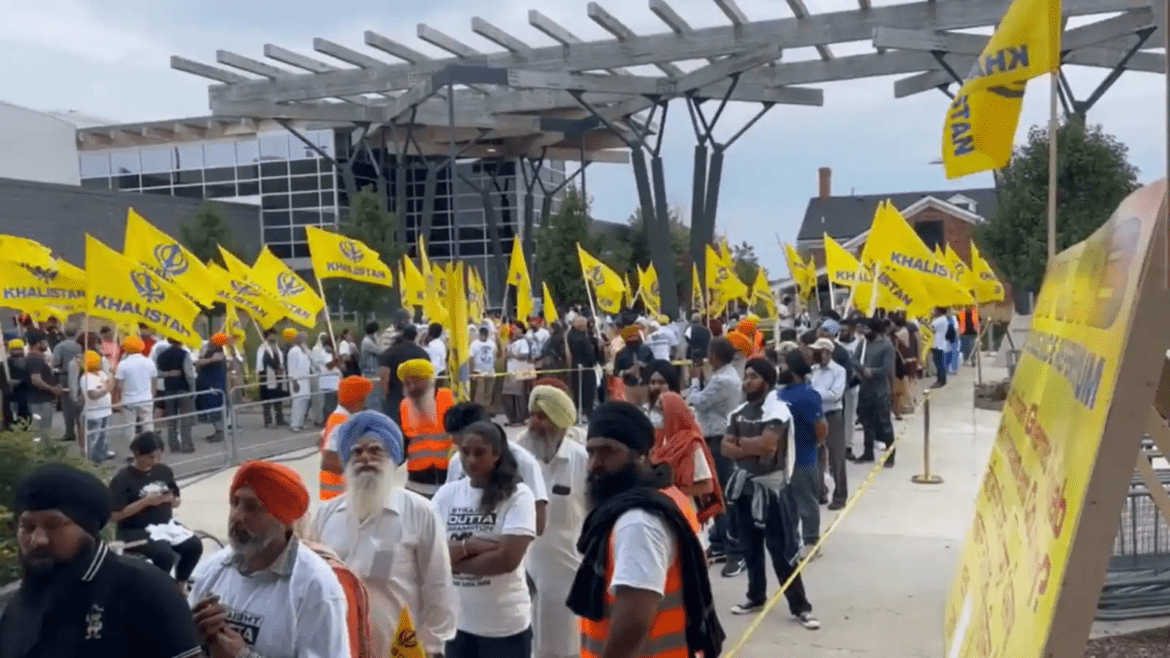AI Generated Summary
- The tweet in question reports a shocking incident where a Khalistan extremist group has declared a part of Brampton, Canada as Khalistan, going as far as blocking the entry of individuals of other faiths and issuing threats of deadly force.
- The perceived lack of assertiveness on the part of Canadian politicians in addressing extremism and safeguarding the rights of all citizens is a pressing concern.
- Is the current Trudeau administration even equipped to protect its citizens and its values in the face of extremism, or are they weak in standing up to extremists.
In recent times, Canada has often found itself in the spotlight on the international stage, not for its picturesque landscapes or renowned politeness, but for its alleged soft stance on Khalistan extremism. This social media buzz has ignited concerns both within and outside the country. While the information we are about to discuss originates from a tweet, the implications are far-reaching and demand serious contemplation.
The tweet in question reports a shocking incident where a Khalistan extremist group has declared a part of Brampton, Canada as Khalistan, going as far as blocking the entry of individuals of other faiths and issuing threats of deadly force. This has led many to raise questions about the state of Canada’s commitment to its principles of freedom, diversity, and multiculturalism.
Congratulations Canada !!
— Megh Updates 🚨™ (@MeghUpdates) September 27, 2023
A K-extremist group has declared a part of Brampton as Khalistan and blocked entry of peoples of other faith with warning of deadly force. pic.twitter.com/bSNFyq7i5m
Canada has long prided itself on being a nation that values diversity and inclusion. However, this incident casts a shadow on this reputation. The idea of a theocratic state, where religious extremism governs the land, is a far cry from the values Canadians hold dear. It begs the question: is Canada turning its back on the principles it has historically upheld?
The assertion made by the extremist group in Brampton, if true, raises concerns about the perception of Canada on the international stage. Is Canada sending a message that they are not just providing refuge to Khalistani extremists, but that Canada is gradually embracing Khalistan itself?
Comparisons between Canada and its southern neighbor, the United States, are inevitable. While the U.S. is often seen as a robust defender of democratic values and religious freedom, Canada’s response to extremist activities has raised eyebrows. The perceived lack of assertiveness on the part of Canadian politicians in addressing extremism and safeguarding the rights of all citizens is a pressing concern. Is the current Trudeau administration even equipped to protect its citizens and its values in the face of extremism, or are they weak in standing up to extremists?
It is essential to question the accuracy of the information presented in the tweet. Misinformation and sensationalism can easily mislead the public. However, even if this specific incident turns out to be untrue, it serves as a wake-up call. Canada must address the perception that it is becoming a sanctuary for extremists and radicals. Failure to do so could result in the emergence of such news stories in the future, eroding Canada’s image on the global stage.




